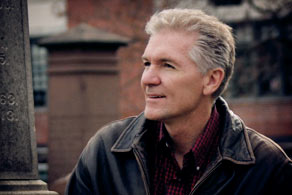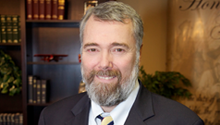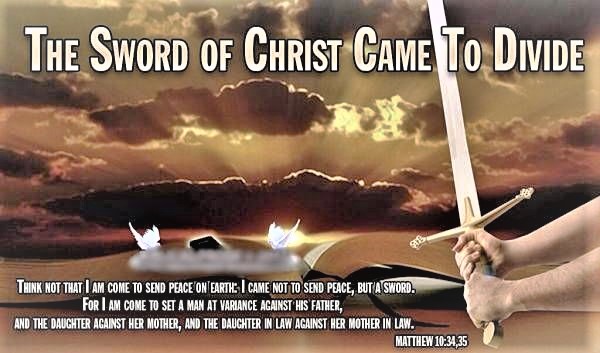CLUB/COFFEEHOUSE CHURCHES-“REFORMED” & LEADERSHIP NETWORK APPLAUD
 An article released this week by the New York Times outlines that coffeehouse churches and other non-traditional settings are becoming the new wave across the nation as many pastors and emergent congregations are attempting to reinnovate the church in order to reach a culture that is increasingly turning against God.
An article released this week by the New York Times outlines that coffeehouse churches and other non-traditional settings are becoming the new wave across the nation as many pastors and emergent congregations are attempting to reinnovate the church in order to reach a culture that is increasingly turning against God.“The cool thing is church planting,” said Warren Bird of the Leadership Network. “The uncool thing is to go into the established church. Why that has taken over may speak to the entrepreneurialism and innovation that today’s generation represents.”
Therefore, many new pastors are deciding to meet inside of coffee shops, theaters, warehouses and even bars to attract those that are turned off to Christianity.
“It’s pretty low risk to wander into a bar or movie theater or hotel,” stated Professor Scott Thumma of the Hartford Institute for Religion Research. “It ends up delivering the message of relevance: we’re just like you, we’re struggling, we might have a beer together — and our faith is also relevant.”
Many churches that continue to meet in a conventional church building are also now deciding to add a coffee hour before or after the services in order to utilize the idea, in hopes that it might draw new people for the sake of community. “Coffee hour: 9:30, worship: 10:30″ announce some signs on church properties nationwide.
“Already several people have discovered the freedom of coming into a safe place to experience God without the formality of a church sanctuary setting,” said Pastor Leon Fikse of Bethany Reformed Church of Redland, California, who recently created a coffeehouse atmosphere at his church, complete with drinks and refreshments. “We encourage those who think this is worth a try to come and to see for themselves how this works for them.”
Others work to make the services into more of a club atmosphere with flashy stage lighting, smoke machines, an edgy band, and modern dances and dramas performed by the youth group. Woodlands Church near Houston, Texas, which has over 15,000 members on four campuses, utilizes more of the concert atmosphere, and Stevens Creek Church in Augusta, Georgia, has a similar feel with a large worship band that includes electric guitars and several backup singers. One Woodlands servicefeatured online shows the worship team performing U2 and Eminem songs on stage for the congregation.
“For us, it’s all about being interactive,” Pastor Paul Wirth of Relevant Church in Tampa, Florida told the New York Times. The publication reports that one Sunday, Wirth took his innovations even further and decided to dress in a rabbit suit and surprise the congregation by loading them all onto chartered buses, where he took them to the local park.
However, there are some pastors across America that do not endorse attempts to transform the church in order to be accepted by the culture. They lament that the focus has now shifted in many churches to where man is the center instead of Christ.

“The Church wants something cooler than God,” Pastor Scott Brown, the director of the National Center for Family-Integrated Churches and elder at Hope Baptist Church in Wake Forest, North Carolina, told Christian News Network. “They want something cooler than the New Testament Church, so they invent a new church for a new generation because they fear losing the next generation.”
“The huge mistake is that it gives people themselves instead of what they really need,” he continued. “People need God. They don’t need more of themselves and they definitely don’t need more of the culture.”
Pastor David Whitney of Cornerstone Evangelical Free Church in Pasadena, Maryland agreed.
“The purpose of worship is to honor and glorify God,” he said. “Christianity is about experiencing God, not experiencing a rock concert.”
Whitney said that in Biblical times, people didn’t take well to Christianity either, and we should not expect a different response today.
“Paul said that his preaching was often despised,” he outlined. “He said that the preaching of the cross is foolishness to those that are perishing. … People turned away when Jesus’ message turned particular and difficult. … It’s not something that’s going to be attractive to the lost.”
Brown outlined that trying to reach the unsaved by humanistic means produces a bottomless pit of continuing to feed people with humanism.
“If you win them with coffee, then you’re going to have to keep them with coffee. If you win them with clowns, you’re going to have to keep giving them clowns,” he explained. “But, if you win them with God, then you give them God, and that’s what they need the very most.”
“It’s humanism that gives birth to entertainment-focused churches,” he added. “It’s an idolization of coolness rather than holiness. … [However,] the Church of God is defined by the holiness of God, not the coolness of man.”

“Jesus did not say, ‘Take up your La-Z Boy recliner and follow Me.’ He said, ‘Take up your cross and follow Me,’” Whitney stated. “That way is a lot less glamorous and a lot less popular.”
But the men assert that Christianity is not about being popular or accepted by the culture. It’s about honoring, obeying and worshiping God.
“If you’re really about what Jesus said regarding success, it’s about being baptized in the name of the Father, Son and Holy Ghost and obeying all that He commanded them,” Whitney said. “The message that’s first and foremost is ‘Repent.’ How can you repent unless you know you’re a sinner? There’s no message of repentance [in most churches today]. There’s no message of sin. Most pulpits will never mention Hell. … We are not called to make converts, we are called to make disciples.”
“When the objective has become [connecting] people with people, then people become the defining focus of the church. And when your objective is connecting people with God, that becomes your defining focus,” Brown stated. “And so the question is, what are we connecting people with? [Is it] with one another, with the culture or are you trying to connect people with God?”
They stated that the early church never tried to use worldly means to reach the lost. Instead, gatherings were for the purpose of building up believers in the faith, and church meetings were never used for evangelism. Rather, the people went out to preach and teach, rather than changing the church so that people would come to them.
“The early church was persecuted and hated and pounded,” Whitney explained. “They were hated because they preached the truth; they preached repentance; they preached that there is only one God. … It was considered intolerant.”
“The early church got together and they prayed and sang. They read the Scriptures, and they experienced the preaching of the word of God. They celebrated the Lord’s Supper,” Brown outlined.
Brown stated that at his church in North Carolina, he aims to keep Christ at the center with no distractions.
“If you came to our church, … I pray that what you would find is that we gather around God as the central focus on the church,” he said. “[That we gather] around the word of God and the preaching of it and the reading of it, singing praises to God and celebrating the Lord’s Supper, and that we would pray. Jesus said, ‘My House shall be called a house of prayer.’ And so, we limit ourselves to these things.”
“We want our people to be satisfied with God and what He has commanded,” Brown continued. “It might be cooler and hipper to show video clips of hot movies or things like that, but what we would say is, ‘No, be satisfied with God.’ God has called us to gather and pray and read and listen to the preaching of the word of God, and we ought to be humble people ready to do what God commanded us to do.”
Whitney said that just because coffeehouse and club atmospheres may attract new people, doesn’t mean that men are being made into disciples.
“It looks like growth, but cancer grows, too,” he said.
“Rather than relating with people by becoming like people, the church is to present the glory of God,” Brown exhorted. “When people come into the church, they should see a completely new kingdom, a completely new community. They should see how different God is than they are and how much more wonderful He is, and how His ways are much more beautiful than their ways.”
“Churches can meet in fields. Churches can meet in catacombs. Churches can meet in a traditional church building,” he noted. “But when the church starts identifying with a coffeehouse rather than the imagery that God has provided, then the Church has really departed from historic Christianity.”
